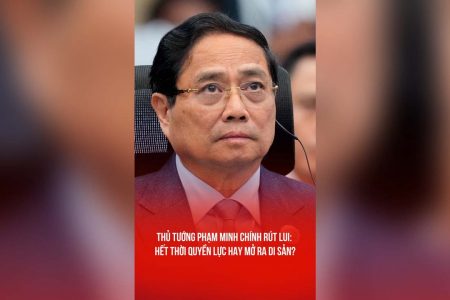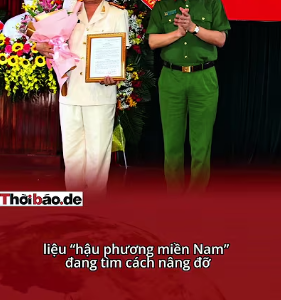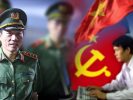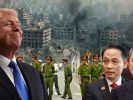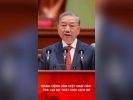
The Vietnamese political elites are gathering to choose the country’s leadership for the next five years as the war against Covid-19 is largely successful and the economy is booming.
In most other countries, usually, this would be something of the equivalent of a general election.
But in communist-ruled Vietnam, the country’s leadership is chosen differently.
Think of the tightly choreographed political stage that one sees at the party congresses of China or North Korea, and you will be able to imagine.
Vietnam is very much like that, albeit on a slightly smaller caliber.
Why is Vietnam important?
The country is one of Asia’s fastest-growing economies and a cornerstone of stability in the region. Like China, it is essentially a burgeoning capitalist power under communism.
The government has successfully established relations with both China and the US, putting the country in a very good strategic position.
Economically, Vietnam has a good relationship with both of those superpowers – and the current trade dispute between Beijing and Washington puts the country in an even better position.
Many multinational companies are currently operating in Vietnam, including global tech giants like Apple and Samsung.
It is also the only country in Southeast Asia that has reduced the economic loss caused by Covid-19 and has experienced moderate growth over the past year.
Although open to the West, Vietnam remains a dictatorship
Militarily, the country is also delicately stepping the line between China and the United States. Vietnam has had wars against both, especially in recent years, which contradicts Beijing over its claims of conflict in the South China Sea (Vietnam calls it the East Sea).
How is Vietnam regulated?
Unlike China or North Korea, this country does not have a single leader. There are four main positions that form the collective leadership of the country: General Secretary of the Communist Party, Prime Minister, State President, and Chairperson of the National Assembly.
The votes for those four positions move up in a pyramid. Every 5 years, about 1,600 delegates elect about 200 members to the Central Committee. The Central Committee then selects about 20 members of the Politburo. The four top leaders are selected among the Politburo members.
Although this sounds like a bottom-up democratic electoral process, there is often extensive political maneuvering and pre-defined options.
Suppression of dissidents
As well as tightly controlled and regulated transitions of political power, so is anything that is considered critical of the authorities.
That’s nothing new in Vietnam – it’s a one-party state, after all, with no real media freedom.
However, in the past few months, there has been a new series of crackdowns against dissidents. Amnesty International and Reuters news agency both said.
In January, these three journalists were sentenced to prison
Earlier this month, three independent journalists were convicted of conducting propaganda against the state and sentenced to 11 and 15 years in prison. This growing grip on dissidents may in part rely on a special military network unit, known as Task Force 47, from 2018 that has targeted disseminating online criticism.
„Most of the people arrested were writers and activists who used social networks – especially Facebook – as platforms,“ explained Nguyen Khac Giang, a Vietnam researcher at Victoria University, Wellington.
„The situation will become more difficult for critics because the government seems determined to suppress any sign of online activity.“
So who will drive?
Of the top four positions, the General Secretary is the most important.
Currently, the person holding that job is Mr. Nguyen Phu Trong, 76 years old. Mr. Trong is serving a second term after being considered a special case in 2016 when he exceeded the 65-year limit.
That should have made him incapable of running for re-election – but over the weekend, the names of the four appointed people leaked and spread widely in the Vietnamese media: Trong will stay for his third term.
He is known for his „burning“ anti-corruption war that was launched in 2016, sending many high-ranking officials including a Politburo member to prison.
Nguyen Phu Trong
Mr. Nguyen Phu Trong is about to have a third term
However, even a change of leadership is unlikely to make any drastic change in the direction of Vietnam. „Vietnam is a highly institutionalized authoritarian regime – key decisions are made based on the consensus of all leaders,“ explained Nguyen Khac Giang.
The 13th National Congress of the Communist Party of Vietnam began with last week’s riot police showdown on the streets of Hanoi.
However, there is no serious threat to the ruling party with 5 million members who seem to have full control over the future of the country for at least the next 10-15 years. Whether it can keep its socialist ideals alive is still to be seen.
Over the next decade, the country has a good chance of sustaining its booming economy, able to compete with its neighbors. It has managed the Covid-19 pandemic quite well, with the economy one of the few countries to see positive growth by 2020.
And the country’s leadership seems to understand that.
They are determined to hold on despite their high age. This happened despite the fact that they said they wanted all new members of the parliament under 55 and women under 50. It seems they wanted to make sure the country would have a younger, bright leadership and more creative – but not now.
What are Vietnam’s challenges?
The new leadership will have to look at the critical phase in the next 5 years. The global pandemic is expected to drag much of the world into recession and Vietnam will try to maintain its growth rate.
Only at the end of last year, the growth target for 2021 was set at an ambitious 6.5%. By 2020, the rate has fallen to 2.9%, the lowest level in more than 30 years – but the country is still doing better than most of the rest of the world.
Last year’s lower growth is of course largely due to the pandemic and it seems certain that 2021’s growth will be held back by the virus again.
Vietnam will continue to seek an economic and geopolitical balance between China and the United States.
China’s belligerent stance is supposed to motivate Hanoi to continue heading towards the US. And if the trade conflict between Washington and Beijing continues, Vietnam is likely to continue to benefit from it as well.
Thoibao.de (Translated)



